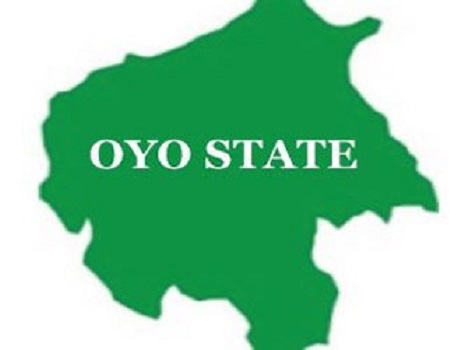

THE Oyo State government has inaugurated a State Technical Working Group on Domestic Resource Mobilisation for HIV in recognition of the importance of coordinated resource mobilisation for HIV/AIDS response.
The 25-man working group, with membership from the public and private sectors, civil society, and partners, is to strategise on improving domestic resource mobilisation for HIV services, thereby leading to ownership and sustainability of the national HIV response.

The executive secretary, Oyo State Agency for the Control of AIDS (OYSACA), Dr. Lanre Abass, at the inauguration of the resource mobilisation technical working group, said without a very formidable resource modularization committee that is up and running, achieving the target of ending AIDS by 2023 in Nigeria, Oyo State inclusive, will be impossible.
Abass stated that domestic resource mobilisation had become more important in the last 30 years of HIV programming due to donor fatigue, coupled with a lot of them pushing their funds into reproductive health and some other health programs rather than HIV.
According to him, the resources will help ensure the Oyo State attains its target of testing and putting at least 95 percent of identifying people positive for HIV on ARV treatment, a UN target that needs to be met by 2030.
“We are trying to ensure that people that are not positive today don’t become positive tomorrow. We have only been able to put just about 30,000 on treatment.
“So, in other words, our target is to ensure we put all 10 million people on HIV treatment. I think the last time we bought HIV test kits was in either 2020 or 2021. Truly, we need money, which is why it is important.”
Earlier, Mr Taiwo Abdulwahab, SACA’s Monitoring and Evaluation Officer, in an overview of HIV in Oyo State, puts its prevalence at 0.9 percent and funding gaps in both capital and recurrent budgets for HIV programming in the state.
“For instance, in 2019, the approval budget dropped from 214 million to 18 million. And out of 18 million for that capital budget, we’re able to realise that the 5 million. In 2022, we have 19 million for the capital budget, but we didn’t receive anything.
“We need a consistent response for funding and support of programmes. That’s why we need to mobilise resources to create a viable and sustainable organization. If there’s no proper funding for an organization to survive, they won’t be able to be viable and sustainable.
Mr Stephen Abellega, Health Systems Strengthening POC, APIN Public Health Initiatives, said the meeting was to develop a roadmap for the actualisation of the set goals and objectives of the technical working group while coordinating resource mobilisation efforts for HIV/AIDS programmes.








